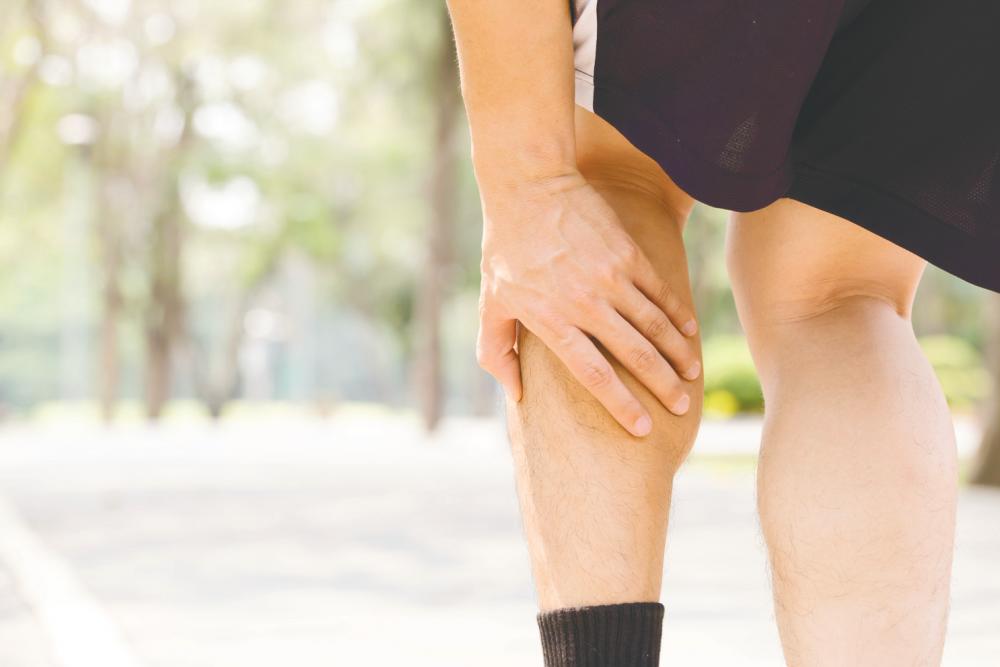Shelve short-term fixes and prevent recurrence
Think about that moment when you were fast asleep but got jolted awake by the ripping pain of muscle cramps, or when you were so close to shooting a goal but had to pull out from the game due to the all too familiar muscle cramps. Those who have experienced muscle cramps or the sudden contraction or tightening of the muscles will be able to relate to the excruciating pain that comes with it. But what causes muscle cramps and how can it be prevented or treated?
The cramping of muscles is basically an involuntary contraction or tightening of the muscles where it does not return to its relaxed state. This often occurs in the calves and thighs, but also in the feet, hands, abdomen, neck and arms. Though generally harmless, when it happens, one can find it quite impossible to use the affected muscle, from a few seconds to several minutes.
A common occurrence that most would have experienced; no one is immune, young or elderly, fit or unfit. According to studies, leg cramps occur in three out of four people at night; one out of five people during the day and night; and one out of 14 people during the day.
When experiencing muscle cramps, people instinctively tend to rub or stretch their tightened muscles. If cramping is prolonged, many apply over-the-counter medicated muscle rubs to help the recovery although there is no convincing evidence that liniments and balms work on sore muscles and joints. These medicated “soothing lotions” and “pain-relieving” balms often only provide short-term fixes; some may cause harmful side-effects.
Another popular “remedy” is to use heat, from a heating pad or warm water, as direct heat is said to help muscles relax. Still, these only provide relief but do not prevent the recurrence of muscle cramps.
To treat muscle cramps and prevent recurrence we’ll first need to understand that muscle cramps are not associated with any one particular cause. Instead, overuse, muscle strain, dehydration and holding the muscle in one position for too long, are known causes. Studies reveal that a common cause is lack of certain minerals such as calcium, magnesium or potassium. Poor diet and dehydration can also cause these mineral (electrolytes) imbalance and make muscles more susceptible to cramping. Hence, maintaining proper nutrition may help reduce muscle cramps.
Delving further, we learn that magnesium is responsible for regulation and proper function of over 300 enzyme processes in our body, including neuromuscular transmission and muscle contraction. There is an abundant supply of magnesium in our bodies and about a third is located in our muscles where it is used for muscle contraction and relaxation. With that, it is said that lack of magnesium may lead to irritability, muscle weakness and cramps.
According to research on average magnesium intake, most people are not consuming enough magnesium and eating too much processed foods, which are low in magnesium. Moreover, the soil where our magnesium-rich dark-green leafy vegetables are grown, have become severely depleted of nutrients. Additionally, studies report that magnesium, despite being available in many dietary sources, is absorbed poorly, orally.
Other factors that can cause magnesium deficiency include the consumption of carbonated and caffeinated beverages; regular consumption of alcohol; intake of medication like diuretics, medication for heart and asthma, birth control pills and oestrogen replacement therapy, etc.; and taking calcium supplements without complementing it with magnesium.
Although magnesium supplements are an option to replenishing depleted magnesium levels, there are different types of magnesium supplements in the market, and each come in different forms and are bound to different substances, such as magnesium oxide, magnesium chloride and magnesium glycinate. Each type of magnesium supplement confers a different effect because of the substance used in combination with magnesium. Hence, the bioavailability and absorption of magnesium may vary.
To receive the benefits of magnesium without the side effects, consider taking amino acid chelated magnesium, such as magnesium glycinate. Research reveals that amino acid chelated magnesium is one of the most bioavailable forms of magnesium for supplementation. In a review article by Coudray et al., magnesium glycinate is listed as a good source of magnesium since it is soluble, absorbable and bioavailable, plus gut-friendly. According to Schuette et al., magnesium diglycinate is an absorbable form of magnesium, especially for patients with intestinal resection.
While other forms of magnesium breaks apart on contact with gastric juices in the stomach and releases ionic magnesium in the intestine which reduces the absorption rate of magnesium; amino acid chelates magnesium remains intact. So, ensure your body is receiving sufficient magnesium. If you find yourself experiencing muscle cramps often, get your magnesium levels checked. Research reveals that 300mg of magnesium daily can significantly reduce the frequency and intensity of leg cramps. But choose the magnesium with high absorption and bioavailability, such as amino acid chelated magnesium.
The information is brought to you by panel pharmacists of Cambert (M) Sdn Bhd. For clarification, please contact Cambert at 03-5638 3660 (Monday to Friday, 9 am to 5 pm) or email enquiry@cambert.com.my













